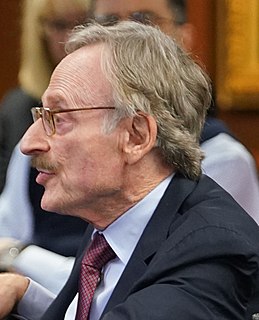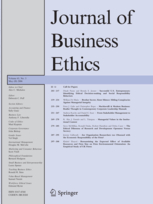Political science is the scientific study of politics. It is a social science dealing with systems of governance and power, and the analysis of political activities, political thought, political behavior, and associated constitutions and laws.

A think tank, or policy institute, is a research institute that performs research and advocacy concerning topics such as social policy, political strategy, economics, military, technology, and culture. Most think tanks are non-governmental organizations, but some are semi-autonomous agencies within government or are associated with particular political parties, businesses or the military. Think-tank funding often includes a combination of donations from very wealthy people and those not so wealthy, with many also accepting government grants.
Public policy is an institutionalized proposal or a decided set of elements like laws, regulations, guidelines, and actions to solve or address relevant and real-world problems, guided by a conception and often implemented by programs. Public policy can be considered to be the sum of government direct and indirect activities and has been conceptualized in a variety of ways.

Foreign Affairs is an American magazine of international relations and U.S. foreign policy published by the Council on Foreign Relations, a nonprofit, nonpartisan, membership organization and think tank specializing in U.S. foreign policy and international affairs. Founded on 15 September 1922, the print magazine is currently published every two months, while the website publishes articles daily and anthologies every other month.
Public opinion is the collective opinion on a specific topic or voting intention relevant to a society. It is the people's views on matters affecting them.
Policy is a deliberate system of guidelines to guide decisions and achieve rational outcomes. A policy is a statement of intent and is implemented as a procedure or protocol. Policies are generally adopted by a governance body within an organization. Policies can assist in both subjective and objective decision making. Policies used in subjective decision-making usually assist senior management with decisions that must be based on the relative merits of a number of factors, and as a result, are often hard to test objectively, e.g. work–life balance policy... Moreover, Governments and other institutions have policies in the form of laws, regulations, procedures, administrative actions, incentives and voluntary practices. Frequently, resource allocations mirror policy decisions.

Social policy is a plan or action of government or institutional agencies which aim to improve or reform society.
An independent voter, often also called an unaffiliated voter or non-affiliated voter in the United States, is a voter who does not align themselves with a political party. An independent is variously defined as a voter who votes for candidates on issues rather than on the basis of a political ideology or partisanship; a voter who does not have long-standing loyalty to, or identification with, a political party; a voter who does not usually vote for the same political party from election to election; or a voter who self-describes as an independent.

Michael Jay Boskin is the T. M. Friedman Professor of Economics and senior Fellow at Stanford University's Hoover Institution. He also is chief executive officer and president of Boskin & Co., an economic consulting company.
The Academy of Social Sciences is a representative body for social sciences in the United Kingdom. The Academy promotes social science through its sponsorship of the Campaign for Social Science, its links with Government on a variety of matters, and its own policy work in issuing public comment, responding to official consultations, and organising meetings and events about social science. It confers the title of Fellow upon nominated social scientists following a process of peer review. The Academy comprises over 1000 Fellows and 41 learned societies based in the UK and Europe.
The Cornell Institute for Public Affairs is a two-year, interdisciplinary Master of Public Administration (MPA) program at Cornell University. CIPA is part of the College of Human Ecology, Cornell University Graduate School and the Jeb E. Brooks School of Public Policy. CIPA MPA candidates are classified as Fellows.
The Cornell Journal of Law and Public Policy (JLPP) is a law review published by students at Cornell Law School, First published in July 1992, JLPP publishes articles, commentaries, book reviews, and student notes that explore the intersections of law, government, public policy, and the social sciences, with a focus on current domestic issues and their implications.

International Affairs is a 100-year old peer-reviewed academic journal of international relations. Since its founding in 1922 the journal has been based at Chatham House, the Royal Institute of International Affairs. It has an impact factor of 5.957 and a ranking of 6th in the world in International Relations journals the 2021 ISI Journal Citation Reports. It aims to publish a combination of academically rigorous and policy-relevant research. It is published six times per year in print and online by Oxford University Press on behalf of Chatham House. In its 100-year history International Affairs has featured work by some of the leading figures in global politics and academia; from Mahatma Gandhi and Che Guevara to Joseph S. Nye and Susan Strange
Public economics is the study of government policy through the lens of economic efficiency and equity. Public economics builds on the theory of welfare economics and is ultimately used as a tool to improve social welfare.

The Journal of Business Ethics is a peer-reviewed academic journal published by Springer Nature B.V. The Journal of Business Ethics is one of the 50 top business journals used by the Financial Times (FT) in compiling the prestigious Business Schools research rank.
Analyses of Social Issues and Public Policy is an annual peer-reviewed academic journal published by Wiley-Blackwell on behalf of the Society for the Psychological Study of Social Issues along with the Journal of Social Issues and Social Issues and Policy Review. The journal was established in 2001. The current editor-in-chief is Chris Aberson. The journal covers social psychological methods in the study of economic and social justice including ageism, heterosexism, racism, sexism, status quo bias, and other forms of discrimination, social problems such as climate change, extremism, homelessness, inter-group conflict, natural disasters, poverty, and terrorism, and social ideals such as democracy, empowerment, equality, health, and trust. Subscribers also receive a full subscription to the Journal of Social Issues and Social Issues and Policy Review.
The Journal of Social Issues is a quarterly peer-reviewed academic journal published by Wiley-Blackwell on behalf of the Society for the Psychological Study of Social Issues along with Analyses of Social Issues and Public Policy and Social Issues and Policy Review. The journal was established in 1945. The editor-in-chief is Carey S. Ryan. The journal covers human and social issues such as poverty, privacy, youth violence, social class, and education.
Journal of European Public Policy is a peer-reviewed academic journal covering the study of public policy, European politics and the EU. The current joint editors-in-chief are Jeremy Richardson and Berthold Rittberger.
The Journal of Aging & Social Policy is a peer-reviewed medical and social science journal covering aging and related public policy issues. It currently releases 6 issues per year. It was established in 1989 and is published by Routledge. The editor-in-chief is Edward Alan Miller. According to the Journal Citation Reports, the journal has a 2019 impact factor of 1.444.





